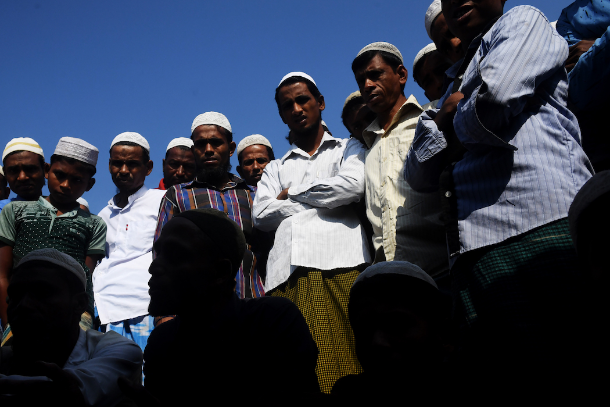
June 21, 2019 John Zaw, Mandalay Myanmar
Rights groups have called out ASEAN leaders gathering in Bangkok over a leaked report on the repatriation of Rohingya refugees which downplays the Myanmar military’s crackdown on the Muslim minority.
Nearly two dozen Rohingya organizations and civil societies from around the world voiced concern over the leaked report from ASEAN’s Emergency Response and Action Team (ERAT).
In a joint statement 23 rights groups on June 20 criticized ERAT’s “preliminary needs assessment” on the repatriation of approximately one million Rohingya refugees now in Bangladesh for being tailored to please the Myanmar government.
“[The report] drastically overestimated the ease and equity with which Rohingya can return to Burma, we call upon leaders and representatives from ASEAN nations to insist upon re-evaluation, re-planning, and work towards implementation of a just and safe plan for the Rohingya,” the ASEAN civil societies and Rohingya organizations said in a statement.
“The report at times reads more as if it is designed to please the government of Myanmar than a product from members of a reputable institution,” the statement said.
“There is no mention of the well documented genocide perpetrated by the Myanmar security forces that drove 740, 000 Rohingya to Bangladesh in 2017,” it read.
The groups also denounced the 56-page report for not using the term ‘Rohingya’, which is a sensitive in Myanmar as most view them as illegal immigrants from Bangladesh and refer to them as ‘Bengalis.’
The statement was released as ASEAN leaders, including Myanmar’s State Counselor Aung San Suu Kyi, began gathering in Bangkok, Thailand for the 34th ASEAN Summit where the repatriation of Rohingya refugees was expected to be on the agenda.
Rights groups — the ASEAN Parliamentarians for Human Rights, the Asian Forum for Human Rights and Development and Progressive Voice — added their voice, calling on ASEAN leaders at the meeting to prioritize Rohingya rights and safety.
“ASEAN needs to stop turning a blind eye to Myanmar’s atrocities against the Rohingya, and cease lending legitimacy to the repatriation process,” said Eva Sundari, an Indonesian MP and a board member of the ASEAN Parliamentarians for Human Rights.
Brad Adams, Asia director at Human Rights Watch (HRW), said ASEAN seems intent on discussing the future of the Rohingya “without condemning or even acknowledging the Myanmar military’s ethnic cleansing campaign against them.”
“It’s preposterous for ASEAN leaders to be discussing the repatriation of a traumatized population into the hands of the security forces who killed, raped, and robbed them,” Adams said.
HRW said that the ERAT assessment team did not visit the camps in Bangladesh or consult Rohingya refugees.
The United Nations, HRW and numerous other humanitarian and human rights groups say that current conditions in Myanmar’s Rakhine State are not conducive for voluntary, safe, or dignified repatriation of Rohingya.
Last September, a U.N. fact-finding mission found that Myanmar’s military committed four of the five acts constituting genocide against the Rohingya. The U.N. said military chief Min Aung Hlaing and five other senior generals must be prosecuted for genocide and crimes against humanity.
